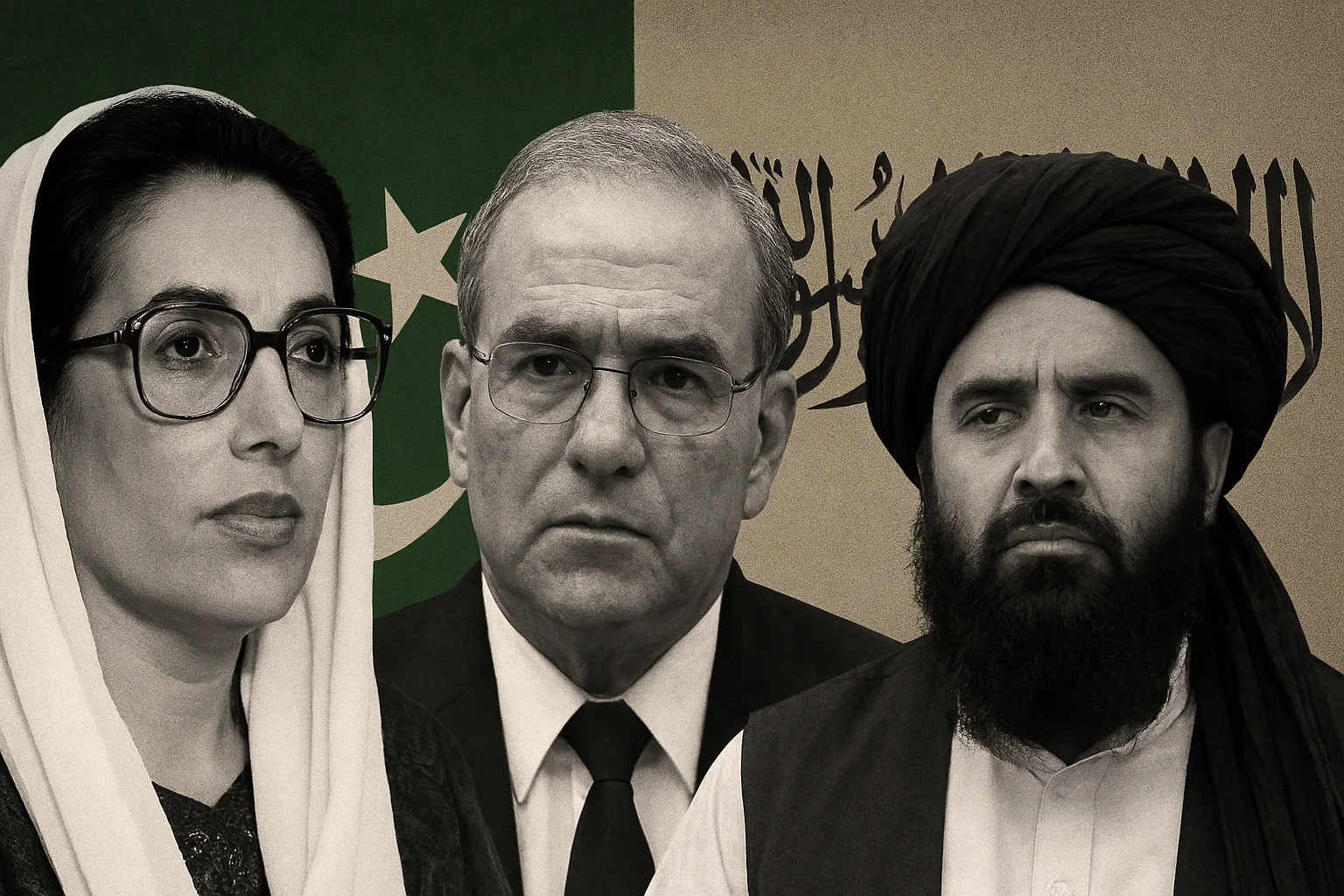Pakistan, the Taliban and Benazir Bhutto: Revisiting the First Contacts

By RepublicPK.com News Desk
Islamabad: Nearly three decades after Pakistan’s first encounters with the Afghan Taliban, newly declassified documents and eyewitness accounts continue to raise questions about how those ties began and how far they went.
According to a detailed report by BBC Urdu, the story begins in the mid‑1990s when Prime Minister Benazir Bhutto’s government was exploring trade routes to Central Asia. What started as an economic ambition soon intersected with Afghanistan’s civil war, drawing Pakistan’s intelligence agency, the ISI, into contact with a little‑known militia that would later dominate Kabul.
Declassified Letters and Conflicting Accounts
A 1995 letter from the US Embassy in Islamabad, now public through the National Security Archive, cited a “reliable source” claiming that then ISI chief Lt. Gen. Javed Ashraf Qazi had privately warned the Taliban could become a dangerous and uncontrollable force. When contacted years later by BBC Urdu, Qazi said he did not recall making such remarks.
The same letter acknowledged that the Taliban were “definitely receiving help from some source,” though it stopped short of naming Pakistan.
Benazir Bhutto’s Perspective
In Ghost Wars, journalist Steve Coll quotes Benazir Bhutto as saying that after initial meetings, Pakistan’s intelligence began requesting secret assistance for the Taliban. According to her, the requests started with fuel, then machinery, and eventually money. Bhutto admitted she authorized funds but said she did not know how much was ultimately provided.
Qazi, however, denied that any such requests came during his tenure, insisting the Taliban financed themselves after capturing Kandahar and Herat.
Public Neutrality, Private Doubts
Despite these claims, Bhutto consistently maintained that Pakistan was neutral in Afghanistan’s conflict. Speaking in Manila in February 1995, she declared:
“We do not want to interfere in Afghanistan, we have no favorites.”
A year later, just days after the Taliban seized Kabul, she again denied providing support, arguing that Pakistan’s fragile economy could not sustain such commitments.
The Legacy of Ambiguity
The contradictions between declassified US cables, memoirs and official denials highlight the murky origins of Pakistan’s relationship with the Taliban. What is clear is that decisions taken in the mid‑1990s, whether for trade, strategy or ideology, continue to shape regional politics today.

